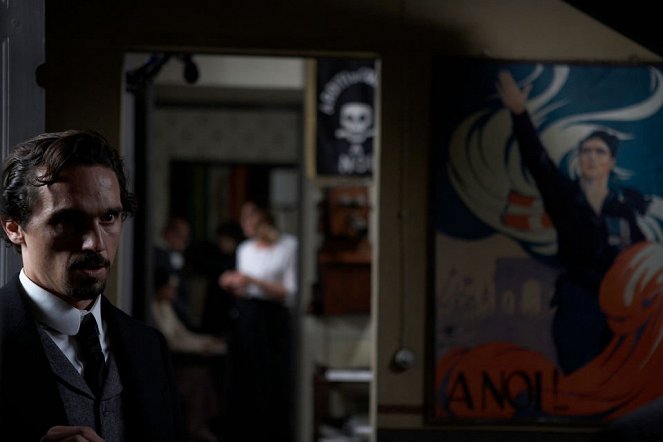Reżyseria:
Marco BellocchioZdjęcia:
Daniele CiprìMuzyka:
Carlo CrivelliObsada:
Giovanna Mezzogiorno, Filippo Timi, Corrado Invernizzi, Fausto Russo Alesi, Michela Cescon, Gianni Schicchi Gabrieli, Paolo Pierobon, Carlo Crivelli (więcej)Opisy(1)
W życiu rodzinnym Mussoliniego istniał tajemniczy sekret. Duce miał pierwszą żonę - Idę Dalser, a także pierworodnego syna - Benito Albino. Oficjalnie najpierw ich uznał, a potem się wyrzekł. Ta ciemna karta w jego życiorysie nie była nigdy traktowana poważnie i zazwyczaj pomijano ją milczeniem. Film Belocchio szczegółowo pokazuje ten dotąd skrywany epizod. (Against Gravity)
(więcej)Materiały wideo (2)
Recenzje (2)
In my opinion, the film is not primarily an attempt to depict the obscure love of a woman and a dictator. For that, the psychology of the characters would be too simple and unchanging from one moment on. Therefore, we should rather understand the film as a more general critique of fascism/Mussolini, in which the film form plays a crucial role with the use of alienating effects in the form of period materials. Furthermore, while up until the turning point Mussolini (F. Timi) appears on screen as himself and can be perceived as a human character (with all his flaws), from the moment of the turning point, he presents himself as a perfect duce through period footage. From that moment on, the internal imperfection = inherent self-destruction of fascism also manifests itself, as it tries to destroy the people who are: 1) the duce's biggest supporters - Ida, who will never stop loving Mussolini and thus will never leave the psychiatric clinic, 2) the duce himself - accomplished by destroying his own namesake son, who in the end transforms into his own father (and is therefore also locked up in a psychiatric clinic), symbolized on the film plane by assigning the role of the son to the actor who played Mussolini's father in the first half. In other words, the more perfect the image of the duce in front of the public, the greater the decline of the real duce (or his "alter ego" in the form of his son and devoted love). The criticism of the role of the Catholic Church is also very subtle: there were many compassionate individuals within it, but it is the church as a whole that actually keeps Ida captive to fascist tyranny throughout the film.
()
Above all, it's a formally interesting film that may get you by how it's shot more than by what's depicted in it. Benito Mussolini is certainly not an uninteresting subject, but this is not a film that is primarily about him. It's about what power can do, how it can change you, and how it can destroy others and throw them into a role they didn't want or expect.
()
Galeria (35)
Photo © IFC Films



Reklama